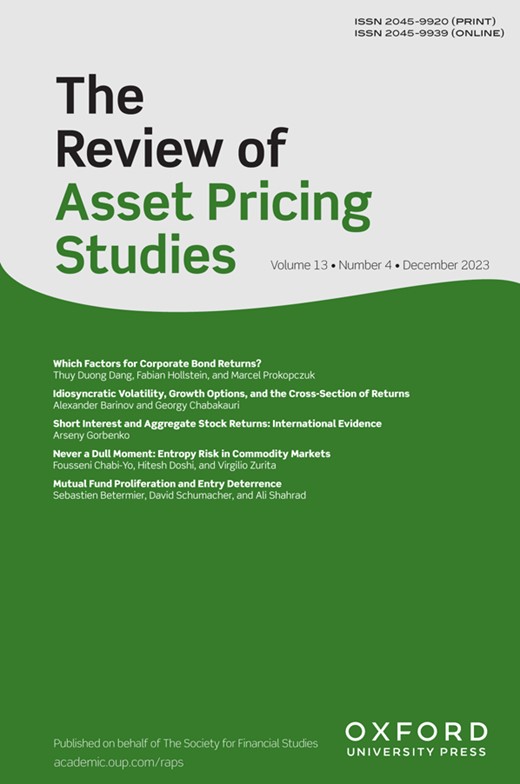团队层级对债券投资的影响
IF 1.5
Q2 BUSINESS, FINANCE
引用次数: 0
摘要
本文利用固定收益投资组合经理(共同基金和保险公司)组织结构的独特数据集,研究基金管理团队内部组织层级对债券投资的影响。我们记录了团队层次结构降低了投资组合经理收集和共享软信息的动机。拥有多重层次结构的基金较少投资于本地公司的债券,持有较少集中的投资组合,更多地跟随市场。总体而言,它们的投资组合表现较差。我们还表明,基金层级的变化随后会影响到基金的行为。本文章由计算机程序翻译,如有差异,请以英文原文为准。
Effects of Team Hierarchies on Bond Investing
By using a unique data set on the organizational structure of fixed-income portfolio managers, that is, mutual funds and insurance companies, we study the effects of organizational hierarchy within a fund management team on bond investing. We document that team hierarchies reduce the portfolio managers’ incentive to collect and share soft information. Funds with multiple hierarchies invest less in bonds of local firms, hold less concentrated portfolios, and herd more with the market. Overall, they deliver lower portfolio performances. We also show that changes in fund hierarchy subsequently find their way into fund behaviors.
求助全文
通过发布文献求助,成功后即可免费获取论文全文。
去求助
来源期刊

Review of Asset Pricing Studies
BUSINESS, FINANCE-
CiteScore
19.80
自引率
0.80%
发文量
17
期刊介绍:
The Review of Asset Pricing Studies (RAPS) is a journal that aims to publish high-quality research in asset pricing. It evaluates papers based on their original contribution to the understanding of asset pricing. The topics covered in RAPS include theoretical and empirical models of asset prices and returns, empirical methodology, macro-finance, financial institutions and asset prices, information and liquidity in asset markets, behavioral investment studies, asset market structure and microstructure, risk analysis, hedge funds, mutual funds, alternative investments, and other related topics.
Manuscripts submitted to RAPS must be exclusive to the journal and should not have been previously published. Starting in 2020, RAPS will publish three issues per year, owing to an increasing number of high-quality submissions. The journal is indexed in EconLit, Emerging Sources Citation IndexTM, RePEc (Research Papers in Economics), and Scopus.
 求助内容:
求助内容: 应助结果提醒方式:
应助结果提醒方式:


